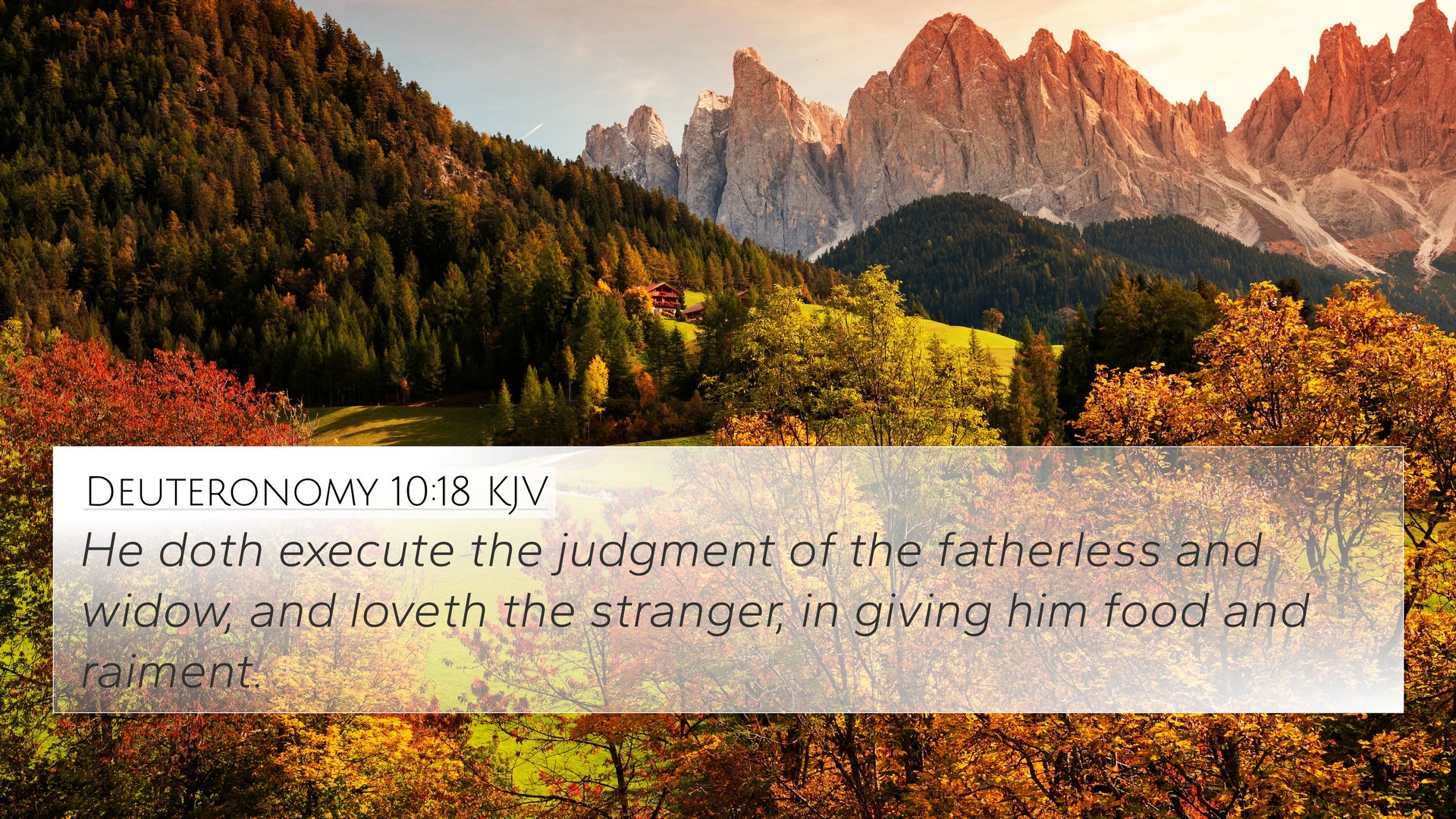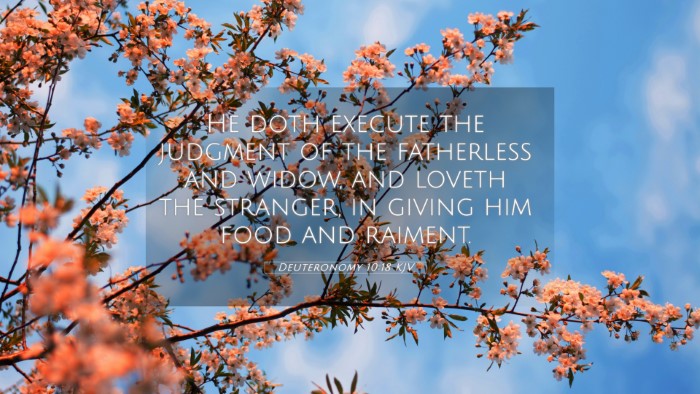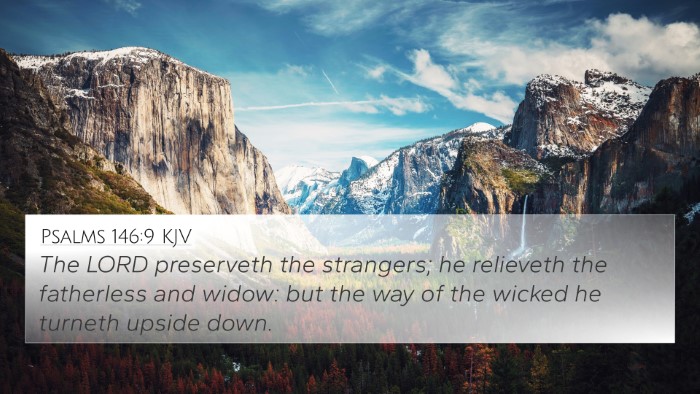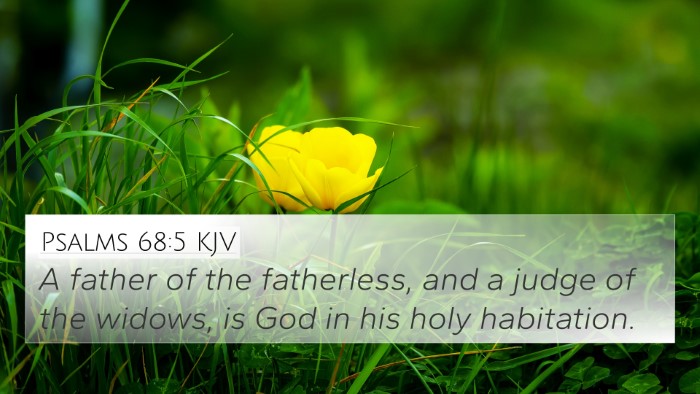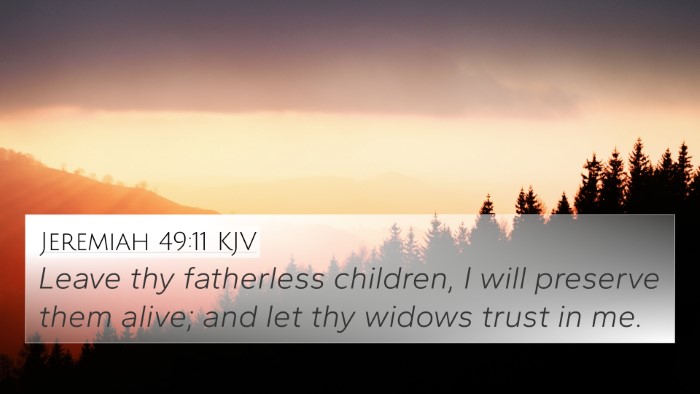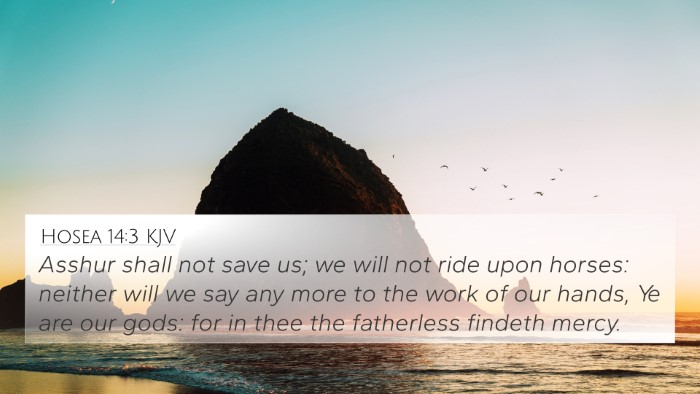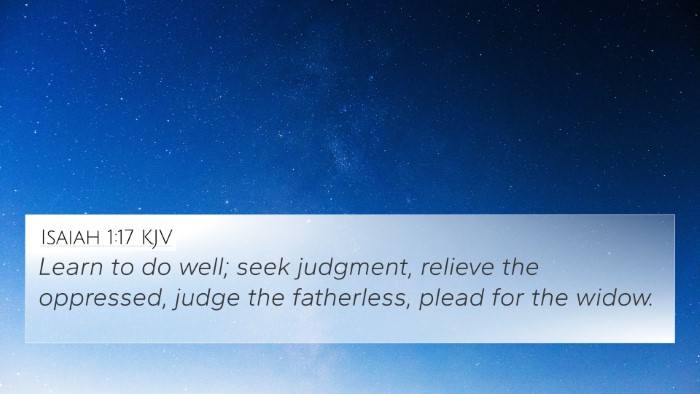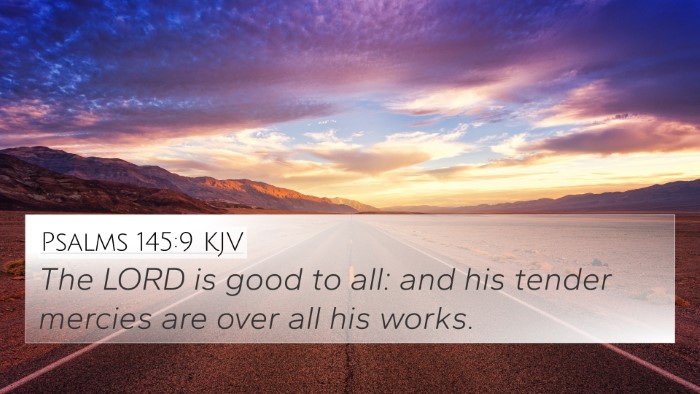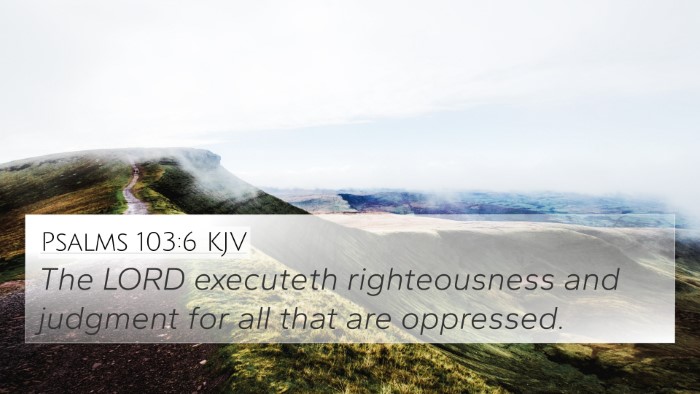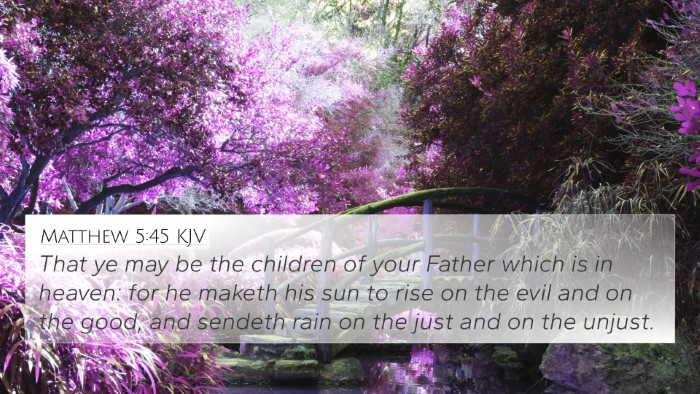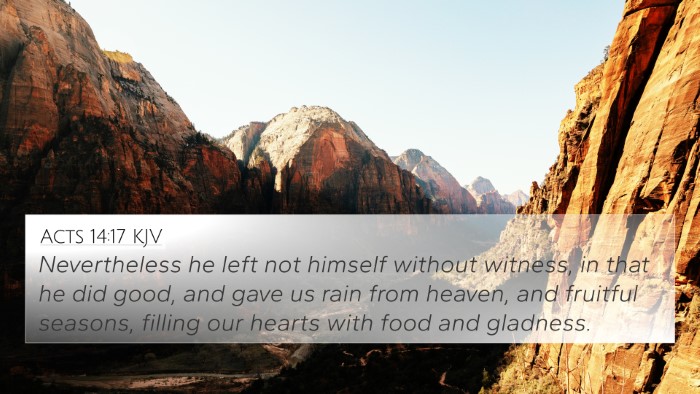Understanding Deuteronomy 10:18
Verse: "He doth execute the judgment of the fatherless and widow, and loveth the stranger, in giving him food and raiment."
Deuteronomy 10:18 highlights God's compassionate nature, specifically His care for the marginalized in society, including the fatherless, widows, and strangers. This verse encapsulates His justice and mercy, illustrating the importance of social responsibility among His people.
Summary of Meaning
This verse emphasizes several key themes:
- Divine Justice: God actively executes judgment, particularly for those who are vulnerable, indicating His role as a protector of the needy.
- God’s Love for Strangers: The mention of love towards strangers portrays God’s inclusive mercy and encourages His followers to adopt a similar attitude.
- Social Responsibility: The implication for the Israelites is a call to ensure the welfare of those who cannot fend for themselves, highlighting God's expectation for His people to mirror His actions.
Commentary Insights
Matthew Henry's Commentary
Matthew Henry elaborates that this verse serves as a reminder of God's justice, stating that He looks with a favorable eye upon those who are oppressed. He remarks on the solemn duty of believers to care for the less fortunate, asserting that true religion includes compassion and justice.
Albert Barnes' Commentary
Albert Barnes interprets this verse as a call to action for Israel. He emphasizes that God’s judgment reflects His love and mercy, and therefore, the people of Israel are reminded to extend similar care towards the marginalized. He points out that the character of God as a defender and provider dictates that His followers must engage in social justice.
Adam Clarke's Commentary
Adam Clarke provides a detailed analysis, noting that the term "stranger" signifies those outside the Israelite community. He underscores God's impartiality and how it necessitates that believers also show kindness to outsiders. Clarke exhorts readers to fulfill this command by becoming advocates for justice and mercy.
Cross-References
Deuteronomy 10:18 connects with several other biblical passages that underscore similar themes:
- Exodus 22:22-24: A command to not afflict any widow or fatherless child.
- Psalm 146:9: The Lord watches over the strangers and upholds the widow and orphan.
- Isaiah 1:17: Calls for the people to seek justice, correct oppression, and defend the fatherless and widow.
- James 1:27: Pure religion is described as visiting orphans and widows in their affliction.
- Matthew 25:35-40: Jesus identifies Himself with the marginalized, stating that acts of kindness towards them are seen as acts of service to Him.
- Jeremiah 22:3: Commands to do justice and righteousness, particularly towards the oppressed.
- 1 John 3:17: Also emphasizes the importance of loving those in need, portraying true love as active and caring.
Connections Between Bible Verses
The themes presented in Deuteronomy 10:18 resonate throughout Scripture, establishing a strong framework for understanding God's character and expectations of His people. By cross-referencing related verses, readers can gain insight into broader biblical themes:
- Social Justice: Throughout the Bible, there is a consistent theme advocating for the care of the poor and marginalized.
- God's Mercy: Many passages illustrate God's mercy toward humanity, urging believers to emulate such traits.
- Divine Judgment: Many scriptures affirm that God will judge nations based on their treatment of the vulnerable.
Thematic Bible Verse Connections
Exploring thematic connections can deepen understanding of Biblical texts. Here are few major themes connected with Deuteronomy 10:18:
- Advocacy for the Vulnerable: Throughout the Old and New Testaments, believers are called to advocate for justice.
- God's Nature of Justice: The description of God’s nature reflects a posture against injustice.
- Universal Love: God's love transcends boundaries, and the call to love is universal.
The Importance of Cross-Referencing in Bible Study
Tools for Bible Cross-Referencing: Utilizing tools like a Bible concordance or a cross-reference guide can significantly enhance the depth of your Bible study, allowing for a comprehensive understanding of interconnected scriptures.
Exploratory Questions: When studying this verse, consider the following:
- How does Deuteronomy 10:18 relate to Jesus’ teachings on love and mercy?
- In what ways can modern believers apply the principles found in this verse?
- How do the cross-referenced verses inform a more rounded view of God's justice?
Conclusion
This exploration of Deuteronomy 10:18 through public domain commentaries by Matthew Henry, Albert Barnes, and Adam Clarke reveals a rich tapestry of insights about God's nature and His expectations for humanity. The interconnections between this verse and others promote a deeper understanding of scripture, highlighting God’s unwavering justice and love for the marginalized.
